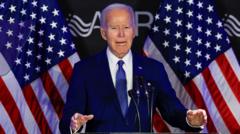Ghana and Nigeria face upside risks to their inflation outlook, largely stemming from the impact of the ongoing global trade war on oil prices, investment inflows and supply chain movement.
According to Deloitte West Africa, the spillover effect of an anticipated rise in global inflation would heighten the cost of living crisis in the two countries through imported inflation.
In Ghana, it said “New US tariffs will spur imported inflation and increase local consumer prices, reigniting inflationary pressure”.
For Nigeria, it said a higher inflation “will increase pressure on the naira, driven by persistent forex demand and potential capital flight”.
However, the lower global crude oil price will lead to a decline in domestic fuel prices in Ghana and Nigeria
Ghana’s inflation declined marginally to 22.40% in March 2025, from 23.10% in February 2025. This was the third monthly decline.
The month-on-month inflation rate also fell sharply to 0.2% in March 2025 from 1.30% the prior month. Both indices moved in tandem with the headline inflation rate.
According to Deloitte, the decelerating inflation trend was facilitated by the stability of the Cedi.
However, the disinflation is yet to translate into lower market prices.
DISCLAIMER: The Views, Comments, Opinions, Contributions and Statements made by Readers and Contributors on this platform do not necessarily represent the views or policy of Multimedia Group Limited.






















